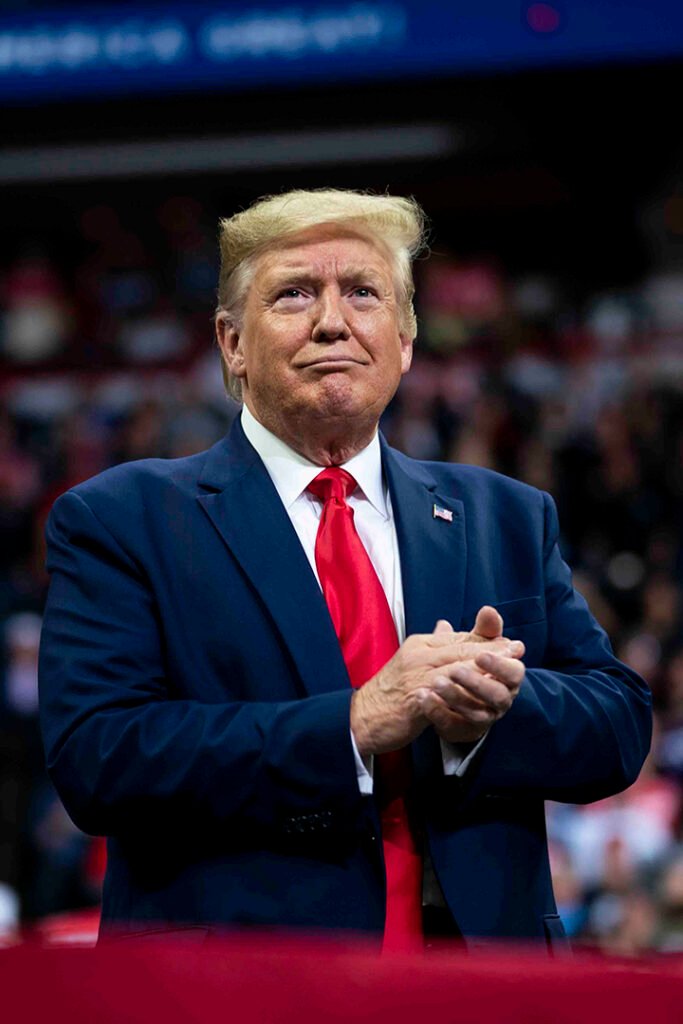Surveys indicate that the race is so close that the outcome may depend on just a few thousand votes in several key states. As Donald Trump embarks on his third consecutive campaign for the US presidency, he entertained supporters at a rally in North Carolina with musings about hydrogen-powered cars exploding, the challenge of removing spray paint from limestone, and the impressive return of Elon Musk’s rocket.
He criticized his Democratic opponent, Kamala Harris, for not working as hard as he is, praised Chinese President Xi Jinping as “fierce,” and called former President Barack Obama “a real jerk.” While the event was promoted as focusing on the economy, Trump quickly shifted to other topics.
With the November 5 election approaching, Trump’s campaign strategy has drawn criticism from political analysts who believe his unconventional rhetoric could alienate voters in what is shaping up to be one of the tightest presidential races in history. Polls suggest that the competition is so tight that the result could hinge on a few thousand votes.
The Harris campaign is concluding its efforts by labeling Trump as “unstable” and “unhinged,” using his unpredictable remarks to argue that he is unfit for the presidency. Trump defends his scattershot speaking style by claiming it allows him to make connections back to his main points, a technique he refers to as “the weave.” Supporters argue that his off-the-cuff approach is a key part of his charm.
His rallies have always included unexpected detours, but as the election nears, Trump seems increasingly willing to spend valuable time recounting stories from his presidency, commenting on irrelevant topics, and meandering through various thoughts. For instance, during a recent rally in Las Vegas, he remarked, “They gave Obama the Nobel Prize… I got elected in a much bigger, better, crazier election, but they gave him the Nobel Prize.”
Despite the unpredictability of his speeches, Trump consistently claims that Democrats have transformed the country into a dystopian state. He frequently describes his political adversaries as the “enemy from within,” sharing alarming anecdotes about crime and violence while making unfounded claims about immigrants.
Trump’s aides say he drives the tempo of his speeches and does not shy away from speaking at length. They have encouraged him to engage in settings like podcasts, where his freewheeling style can thrive without rigorous questioning.
In a lengthy podcast interview, Trump speculated about the existence of life on Mars, despite a lack of evidence. He also claimed windmills negatively impact whales, a statement contradicted by scientific data. “I want to be a whale psychiatrist,” he quipped.
As the election approaches, Trump has ramped up his campaign schedule, holding events in six of the seven states likely to decide the election. He often focuses on topics like border security but still finds time for personal anecdotes. For example, he recounted averting a trade war with France over champagne, to the point where audience members began to leave.
Trump’s recent antics have sometimes overshadowed his policy discussions. At one rally, he even turned it into a dance party, entertaining the crowd with his favorite songs. His style is primarily aimed at energizing his base, even as some experts argue that his erratic comments could hinder broader appeal.
In a rally before about 7,500 people in Greensboro, Trump criticized Harris for not campaigning and praised foreign leaders like Xi and Vladimir Putin, while dismissing celebrity supporters of Harris. He went on to recount a lengthy, distracting tale about a SpaceX rocket’s landing, drawing exaggerated gestures as he described its descent.
“That’s terrible. It’s going to crash. What the hell is it?” he wondered aloud, before veering off into a comparison of his economic proposals to the invention of the paper clip.
At one point, he noticed how far he had strayed from his planned remarks, proudly admitting, “I haven’t looked at the teleprompter for 15 minutes.”


